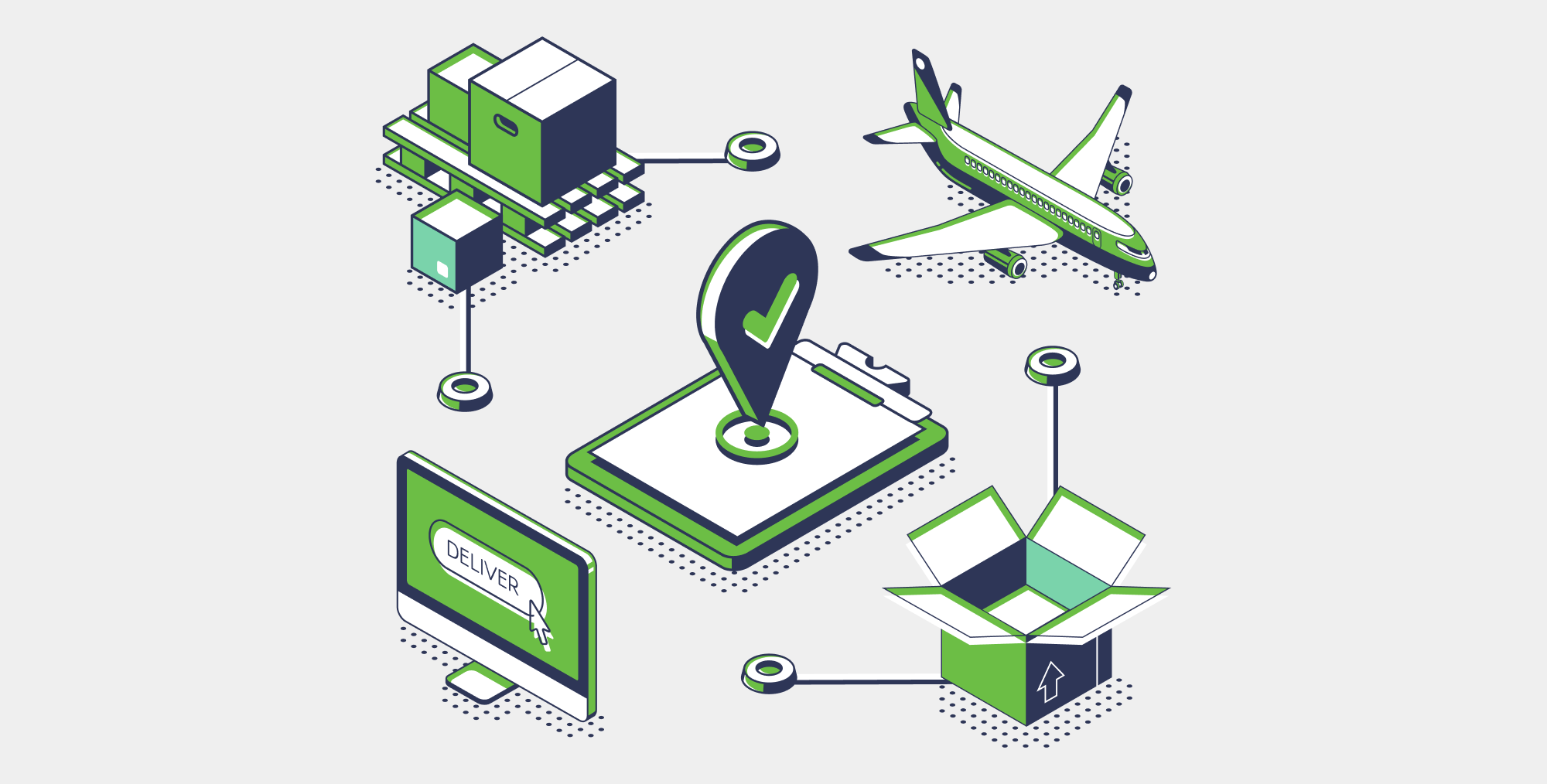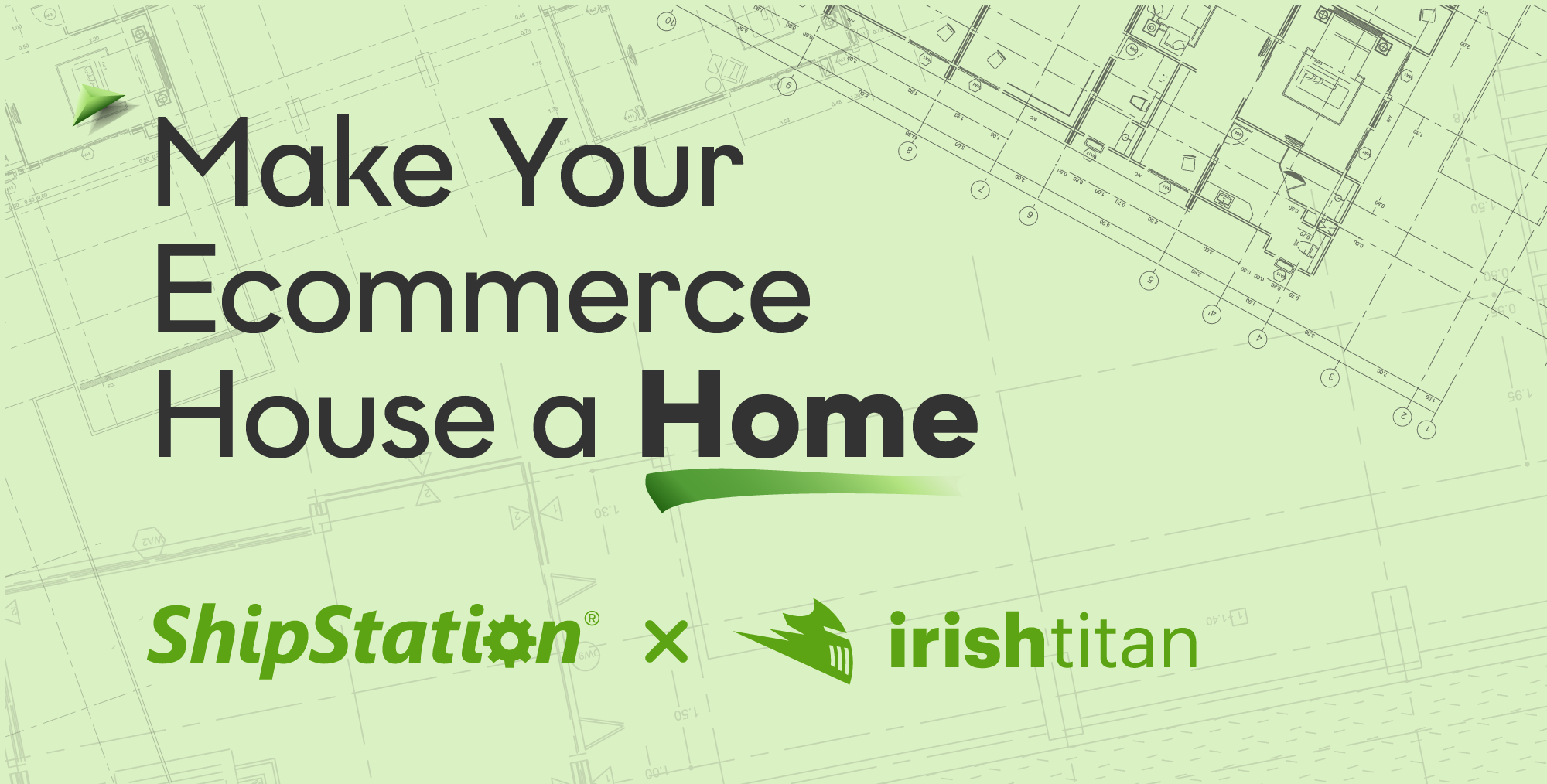What is a 3PL Provider?
Experiencing tremendous growth in your business? No need to panic and rush into expanding your warehouse space or hiring a whole new team of employees just yet. If peak season demands are hitting you hard or scaling challenges causing headaches, you need a solution fast. The answer may be simpler than you think! 3PL (Third-Party Logistics) providers help businesses of all sizes, shapes, and verticals grow into their full potential. These experts of warehousing, fulfillment, and shipping can be the hero you’ve been waiting for. But how do you know if you need one? What factors should you consider when choosing a 3PL partner? And how can you ensure a seamless and successful relationship with them? We’ll answer these questions and more as we explore the world of 3PLs!
What is a 3PL?
A 3PL provider is a company that provides logistics and supply chain management services to other companies. These services can include services as far-ranging as transportation, warehousing, parcel delivery, freight forwarding, inventory management, and other related activities. 3PL providers function as intermediaries between shippers and carriers, and help streamline logistics processes, reduce costs, and improve supply chain efficiency for their clients.
By outsourcing logistics to a 3PL provider, companies can focus on their core business activities and leave the complex logistics operations to a specialized provider. This can be particularly beneficial for companies that lack the expertise, space, or resources to manage logistics operations on their own. Additionally, using a 3PL provider can provide access to a larger network of carriers, warehouses, and other logistics resources that can help improve your efficiency, reduce costs, and create better brand awareness. By leveraging a 3PL for all or some of your fulfillment and logistical needs, you can have the space to focus on other sectors of your business instead of worrying about shipping.
Advantages of Using a 3PL
Using a 3PL provider can offer several advantages to businesses that are seeing an influx in order volume through either steady, rapid, or seasonal order growth.
Cost Savings
One of the primary benefits of using a 3PL provider is they help save costs. By outsourcing logistics operations to a specialized provider, businesses can avoid the significant capital investments required for maintaining larger warehouses, transportation fleets, and other logistics resources. This is especially true for businesses that experience seasonal surges in order volume. 3PL providers may also access better, negotiated carrier rates which can pass savings on to you as a business owner. However, you don’t have to have a 3PL warehouse to access discounted shipping rates. Anyone that uses ShipStation to ship ecommerce orders can access shipping discounts of up to 82% off.
Scalability and Flexibility
3PL providers can provide scalable logistics solutions that can be tailored to meet the needs of your individual brand or business. This means that companies can adjust logistics capacity depending on changes in demand or business growth. Additionally, 3PL providers can offer flexible logistics solutions that can be adjusted quickly to accommodate changes in the supply chain, such as new customer requirements, international regulations, or changes in market conditions.
Expertise and Technology
3PL providers typically have expertise in logistics and supply chain management, as well as access to the latest technology and tools. By partnering with a 3PL provider, you can leverage this expertise and technology without investing capital in your own new warehouse tech. This can help businesses reduce lead times, help with picking accuracy, and enhance the overall customer experience.
Disadvantages of Using a 3PL
Lack of control: When you outsource logistics operations to a 3PL provider, you relinquish control over the movement of your goods. The 3PL company becomes responsible for the movement of your products, and you may not have real-time visibility into the status of your shipments. Using a system like ShipStation for fulfillment provides real-time tracking access for both the 3PL and their merchant.
Long-term cost: Hiring a 3PL provider can be expensive, especially for smaller businesses with limited funds and resources. In addition to the direct costs of hiring a 3PL, such as fees for transportation and warehousing, there may also be hidden costs such as additional inventory holding costs or increased liability exposures.
What is 1PL, 2PL, 3PL, and 4PL?
1PL (First-Party Logistics): An example of 1PL would be when a farmer delivers the beans and corn they grow to a farmer’s market or grocery store. 1PL is when a company manages its own logistics operations in-house, without outsourcing any logistics activities to a third party. In effect, the company takes full responsibility for its supply chain operations.
2PL (Second-Party Logistics): An example of 2PL is probably the most familiar. A 2PL model is when a provider of logistics services, such as a shipping company like UPS, delivers goods to an end consumer on behalf of another business. The second-party logistics provider operates under the direction of the sender and is responsible for carrying out specific logistics tasks.
3PL (Third-Party Logistics): An example of a 3PL would be when a business outsources its inventory to a third party to house, fulfill, and ship orders. 3PL providers offer a range of logistics services to multiple clients. The 3PL provider manages and coordinates various aspects of the supply chain, including transportation, warehousing, inventory management, and distribution. The company outsourcing its logistics operations to a 3PL retains overall control over its supply chain while benefiting from the 3PL’s ability to ship goods.
4PL (Fourth-Party Logistics): 4PL is a little more complicated. This is when a business outsources its entire supply chain management and logistics to a third party. 4PL differs from 3PL in that the client’s business does not coordinate any of the flow of materials or merchandise. A 4PL offers comprehensive supply chain management services to a company. The 4PL provider acts as an integrator, coordinating the activities of multiple logistics service providers, including 3PLs, to create a seamless and efficient supply chain. The company outsourcing its logistics operations to a 4PL benefits from improved visibility, control, and optimization of its supply chain.
Is FBA (Fulfillment by Amazon) a 3PL?
Yes, Fulfillment by Amazon (FBA) is a type of 3PL service offered by Amazon. Of all the 3PLs, FBA probably has the most brand recognition. FBA allows sellers to store their products in Amazon’s fulfillment centers, and Amazon handles the picking, packing, and shipping of orders on behalf of the seller. Amazon also provides customer service and handles returns on behalf of the seller. FBA provides a convenient and efficient way for sellers to fulfill orders and reach customers globally, while also benefiting from Amazon’s logistics expertise and infrastructure.
Signs You Need a 3PL
Signs that a company needs a 3PL are easy to notice. The problems generally come down to needing more space, needing more workers, and having more order volume and inventory than you can handle. Remember that 3PL can be both a short-term and a long-term solution. And regardless of third-party involvement, an efficient in-house shipping process is also recommended so you can best determine your needs.
Lack of space
A major sign that you need to use a 3PL provider is that your company has run out of space to store inventory. A 3PL provider offers warehouse space for your additional storage needs.
Inadequate resources
Another sign that you need to use a 3PL provider is when your company lacks the resources to manage your logistics operations effectively. This could include a shortage of staff, equipment, or technology. A 3PL provider can offer expertise, technology, and other resources to help you manage your logistics more efficiently without you having to invest heavily for in-house solutions.
Peak season demand
If your company experiences fluctuations in demand, it can be challenging to manage your logistics operations effectively. A 3PL provider can offer flexible solutions to help you manage your inventory and shipping needs.
Rapid Business Growth
If your business is growing rapidly, you may find that your current logistics operations are struggling to keep up with demand. This can lead to delays in shipments, increased costs, and customer dissatisfaction. A 3PL provider can help you scale your logistics operations to meet the growing demands of your business.
How to Choose a 3PL
Technology: Check if the 3PL provider utilizes advanced technologies such as transportation management systems (TMS), warehouse management systems (WMS), and inventory management systems to optimize logistics operations.
Scalability: Ensure that the 3PL provider can scale its operations to meet your changing needs as your business grows. Moving inventory to other 3PLs can be a compounded cost.
Flexibility: Look for a 3PL provider that can offer flexible solutions tailored to your specific requirements, rather than a one-size-fits-all approach. A credible 3PL provider should be able to cater to your needs without sacrificing fulfillment speed.
Compliance: Check if the 3PL provider adheres to industry standards and regulations, including those related to data privacy, security, and environmental sustainability. Check with any other platforms or organizations you partner with to see if they too have requirements for whom certified vendors or sellers can use.
Cost: Evaluate the 3PL provider’s pricing structure, including fees, rates, and additional costs, to ensure that it fits your budget and provides value for money.
How ShipStation Helps You Work With 3PLs
With ShipStation, businesses can import and manage their orders from multiple sales channels, including online marketplaces, shopping carts, and platforms, and automatically send order information to their 3PL provider for fulfillment. ShipStation also provides real-time tracking information and inventory management capabilities, helping businesses to stay on top of their logistics operations and provide better customer service.
ShipStation Integrates With Over 30 3PLs
ShipStation makes finding the right 3PL easy. With over 30 partners, we have partners that provide warehousing, fulfillment, and shipping support for businesses of any size. You can find the right solution for your business.
ShipStation Even Helps 3PL Warehouses
ShipStation provides support for 3PL providers to strengthen communication and relationships with the vendors and merchants they partner with. ShipStation 3PL is a tool that helps businesses at every link in the supply chain stay connected.
For white-glove support finding the right 3PL provider for your business, reach out to ShipStation now!




